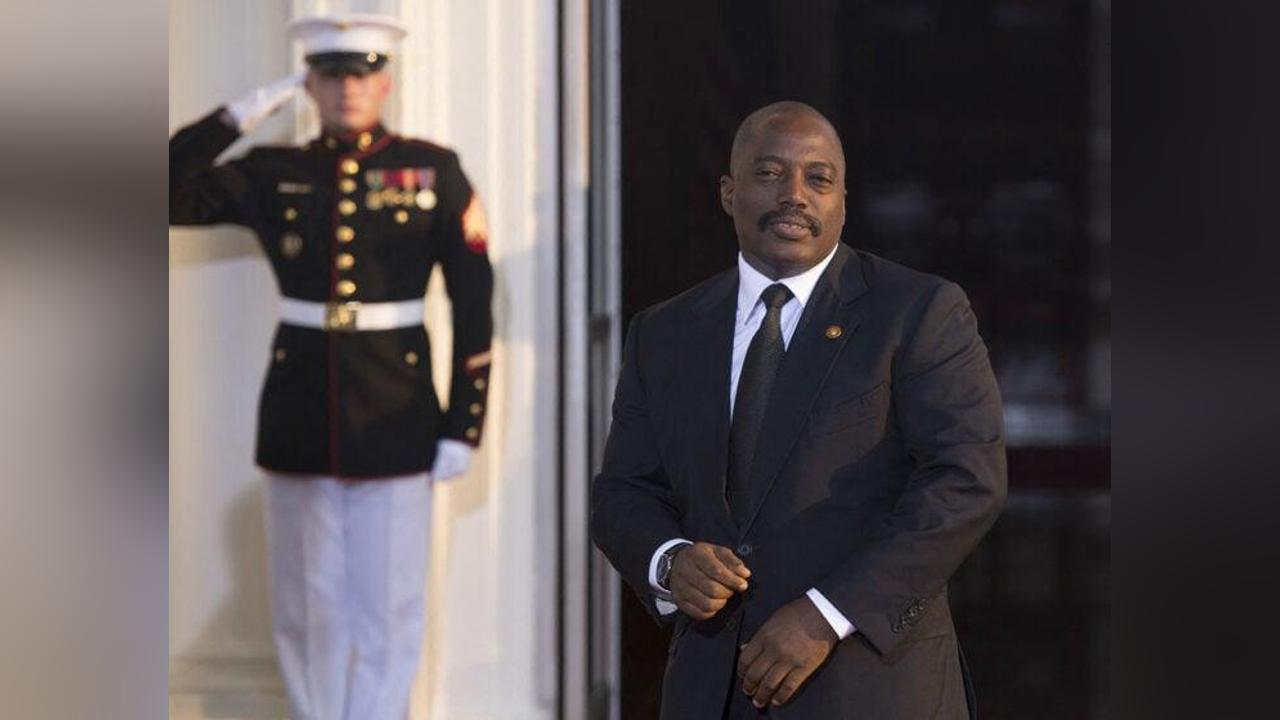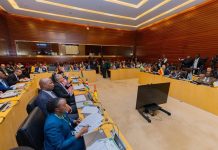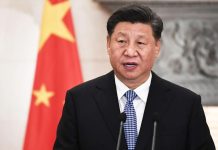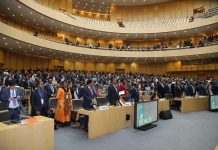Africa-Press – Lesotho. By Romain Gras
As was the case during DRC’s last presidential election, the heavyweights of Congolese politics have rushed to the lobbying firms in Washington with national elections scheduled for the end of 2023.
For the last few months, political operatives have been waging a war of influence by proxy, as our investigations reveal. The next presidential election in DRC is scheduled for the end of 2023.
From Félix Tshisekedi to Martin Fayulu and Moïse Katumbi, DRC’s key contenders have been busy for several months on the banks of the Potomac. Five years ago, these same contenders had tried to win favour with the Trump administration, seeking contracts signed at a high price with mixed results.
It was early 2017 when a phone number with a +243 area code appeared on Brian Ballard’s iPhone screen. At the other end of the line, Joseph Kabila’s cabinet knew it was under pressure.
Several securocrats, including generals, had been placed under US sanctions a few months earlier by Barack Obama’s administration for suppressing Congolese opposition demonstrations. Other restrictive measures were to be expected, especially as the electoral process is already behind schedule.
For the Congolese head of state, the inauguration of Donald Trump a few days earlier was seen as a godsend, a way of relieving the pressure that Washington had been placing on his regime, while he has not formally ruled out the possibility of a third term, contrary to the Constitution.
At the beginning of the year, the Congolese president, therefore, sent his former foreign minister, Raymond Tshibanda, to whom he gave the title of “special envoy for the United States,” and asked him to tour K Street.
While not the only lead, Ballard Partners served as a prime target. Familiar with the newly-christened occupant of the White House at the time, he was one of the main fundraisers for the billionaire’s election campaign.
Seen from Kinshasa, the Floridian had the means to establish a direct channel with the businessman-turned-head of state and therefore try to convince Washington on two key points: the holding of elections on the scheduled date and the probity of the electoral commission office, headed by Corneille Nangaa.
“When Kabila’s teams contacted us, I suppose they knew that Brian Ballard represented the Trump organisation in Florida and that he was co-chair of the organising committee for his inauguration,” said Sylvester Lukis to The Africa Report.
Lukis has been Ballard’s partner and friend since the 1980s, sitting in the meeting room of the Ballard Partners offices, where a huge photo of an aeroplane, the personal property of the Floridian lobbyist, is displayed on the wall.
At the time, the African clientele was fairly new to the firm, which had just opened its Washington office. Despite the tempting financial offer, however, Ballard ended up saying no to Kabila. It would be of no consequence, as after each change of administration, the lobbyists in Washington are quickly taken by storm.
A few months after refusing to plead the cause for Kabila, the Florida firm joined the armada of lobbyists of In exile since 2015 and deprived of his passport, the opponent wants to plead his case in Washington to return to the DRC, with the objective of becoming the country’s next president.
Since 2016, he has already secured the services of the DCI Group and Akin Gump Strauss Hauer & Feld, one of Washington’s biggest firms. In September 2017, he signed a one-year contract with Ballard Partners for $50,000 per month, a contract now remembered as a futile investment.
Prevented from returning to the DRC, Katumbi eventually rallied behind Martin Fayulu, in whose service he placed his lobbying ambitions. So Kabila called upon the services of the mysterious Israeli-based Mer Security and Communication Systems, largely unknown to the lobbyist community in Washington, which pocketed a hefty sum of $5.57m for 12 months of collaboration.
“One of the biggest contracts of the Trump era,” says a K Street insider. It was the start of a brand-new first trench war in Washington in an attempt to seduce the Trump Administration. With no previous experience on K Street, Mer recruited extensively and built a team of more than 25 consultants.
“We targeted a few American officials around the president, such as Secretary of State Mike Pompeo or even close associates, such as Rudy Giuliani,” says a Congolese source involved in the case. For months, each has been trying to curry favour with the Trump Administration.
“The potential for military and commercial alliances [with the DRC] is unlimited, but to benefit from this potential, the US must talk with Kabila’s special envoy,” writes one of the consultants hired by Mer, in a letter dated September 2017.
These efforts are not successful. Under Obama, Washington maintained a firm line: Kabila must go. “They remained hostile to any discussion,” summarises the Congolese source previously quoted.
“Mer could not do anything. They tried to defend a president who had no credibility with the US government,” said a lobbyist.
In a coincidence of K Street microcosm, it is now the ‘credibility’ of Kabila’s successor, Félix Tshisekedi, that Ballard Partners is addressing in Washington.
On 11 March 2022, it signed a $900,000-a-year contract with the Congolese government, officially to “promote the DRC as an international leader in the fight against climate change.
”
“At the time we were hired, there were already several opponents approaching Washington to position themselves before the 2023 elections,” Lukis says. Four years after the fierce battle against Kabila, a peculiar facsimile has been playing out for several months in the American capital.
In January 2022, Martin Fayulu, who has never stopped claiming his victory in the 2018 presidential election, signed a contract with the firm Future Pact LLC for the meagre sum of $17,500 per month, running until the end of 2023.
Six months after his signature, the opponent personally travelled to Washington to plead his case. “My message is to tell the US that they were wrong to support someone who did not win the elections.
Today, they must repair this mistake and support transparent and fair elections,” explained Fayulu during his visit last September. This trip was prepared by the pro-democracy organisation Vanguard Africa, headed by Jeffrey Smith.
Although he only calls himself a “technical lobbyist,” he has made a speciality of collaborating, often pro-bono, with opponents such as the Tanzanian Tundu Lissu or the Ugandan Robert Kyagulanyi (alias Bobi Wine).
“Access is inevitably more restricted when you don’t come with the label of a big firm,” says Smith. While Fayulu is still relatively new to this market, Katumbi has been a regular K Street client for several years.
In June 2021, he hired the services of three firms, DCI Group, King & Spalding and Brownstein Hyatt Farber Schreck, which operates as a consultant to King & Spalding for $80,000 a month.
According to the services declared by Brownstein Hyatt Farber Schreck, the firm, which works with Ed Royce, former chairman of the Congressional Foreign Affairs Committee, received $110,305 for its services between July 2021 and February 2022.
The firm reported nearly 130 calls, emails, and messages from the National Security Council, NGOs, or staff members of elected members of Congress over this period.
In recent months, their Congolese opposition lobbyists have stormed Congress. “They keep calling. Some of these opponents are asking us to lobby for the reshuffling of the Constitutional Court or the electoral commission.
The likelihood of that happening is non-existent,” mentioned a source in the corridors of Congress who follows African issues. The ex-governor of Katanga’s offensive has, however, had some results.
On 14 September 2021, New Jersey’s Chris Smith, who was targeted by Katumbi’s lobbyists, issued a statement in which the Republican said he was “extremely concerned about the measures taken by Congolese President Félix Tshisekedi to neutralise the Independent National Electoral Commission (CENI).
”
On 16 March 2022, two members of the House International Relations Committee recalled that “the 2018 [Congolese] elections were neither free nor fair,” and called for “additional measures [to be] taken to pave the way for free and fair elections in 2023.
”
Documents obtained from the US Justice Department’s website show exchanges between a lobbyist from Kings & Spalding and the chief of staff of one of the two signatories to make some adjustments to the contents of the letter.
With a small pin of the Congolese and American flags on his jacket and a cocktail in his hand, Joseph Szlavik seems to be amused by the war that the candidates for the next presidential election in the DRC are currently waging.
“Today, with social networks, the impact of this type of mail is rapidly amplified,” says this cigar enthusiast, comfortably seated in the lounge of a hotel in central Washington.
Since March 2022, his firm, Scribe Strategies and Advisors, has been operating, like Ballard Partners, on behalf of the Congolese His contract was signed two days before the 16 March letter was published.
“I called Ed Royce to thank him,” said Szlavik, who had worked with former Congolese president Pascal Lissouba, Uganda’s Yoweri Museveni, and the Bongo family in his 30 years of lobbying.
The concrete impact of the hundreds of thousands of dollars spent by the various contenders of the upcoming Congolese presidential election remains to be put into perspective.
The “privileged partnership” established in Washington at the beginning of Tshisekedi’s term of office has delivered, four years later, a more than mixed result.
Despite promises, American investments remain meagre. The offensive in the mining sector, where Washington wishes to counter Chinese influence, has not produced the hoped-for effects either.
Worse, relations have even become strained on other issues, such as that of Israeli billionaire Dan Gertler, who concluded an agreement with the government in February 2022.
“This is a red line for Washington,” says a Tshisekedi lobbyist. In recent months, the Congolese president’s American advisors have been trying to make progress on two other fronts.
On the one hand, they are trying to reassure US leaders that the deadline for holding the elections will be respected. On the other hand, they are trying to obtain Washington’s support in the ongoing crisis between the DRC and Rwanda, with the latter accused of supporting the M23 rebels.
In June, Kinshasa’s lobbyists quietly sounded out the Senate Foreign Relations Committee, headed by Bob Menendez. “Can the committee send a letter to the State Department asking for an investigation into Rwanda’s involvement?” asked one of Ballard’s lobbyists.
In Kinshasa, this activism is surrounded by a certain amount of fantasy. “Sometimes people call us to ask why the US has not yet deployed its army on the ground to support the DRC. Our job is to make people understand that things don’t work like that here,” remarked one of the lobbyists hired by Kinshasa.
For More News And Analysis About Lesotho Follow Africa-Press






